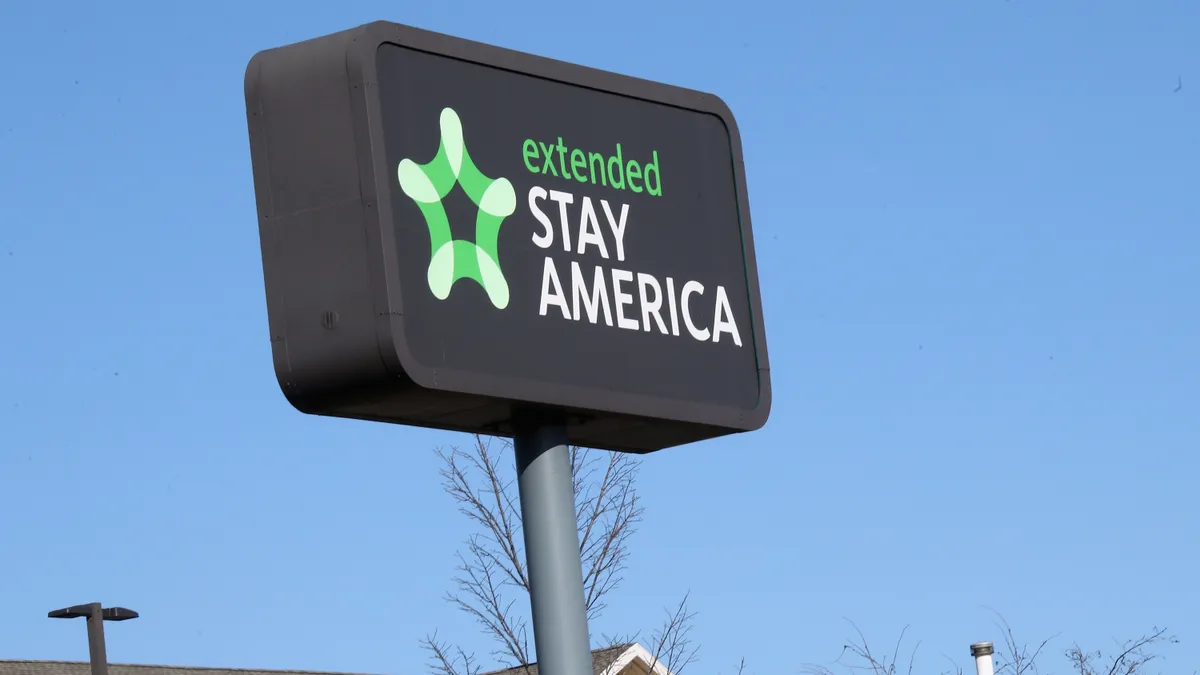Dive Brief:
- A manager at a Pennsylvania Extended Stay America bullied and terminated an employee because of the worker's transgender status, in violation of Title VII of the Civil Rights Act of 1964, according to a recent lawsuit (Grinage v. Extended Stay America, Inc.; Figurski, No. 21-cv-0820 (W.D. Penn. June 24, 2021)).
- When the manager interviewed the worker, he asked whether the applicant was a Christian. The worker answered yes and chose not to bring up gender identity. But co-workers told the plaintiff to "be yourself," according to court documents, and the employee began to dress in clothes generally associated with women.
- The worker went to management after being mocked, and the hiring manager said he would fire the plaintiff for continuing to present as a transgender woman. The employee called Extended Stay's hotline number to report the bullying, which continued and worsened, the complaint said. Eventually, the hiring manager terminated the worker.
Dive Insight:
The U.S. Supreme Court expanded Title VII when it handed down its Bostock decision in 2020. It ruled that the statute's provision that employers may not discriminate on the basis of sex includes sexual orientation and gender identity.
On the one-year anniversary of Bostock, EEOC Chair Charlotte Burrows noted that LGBTQ workplace discrimination remains an enforcement priority for the agency. "I believe we should play a central role — and indeed, should lead — in fulfilling the promise of Bostock," she said during the opening session of EEOC's 2021 virtual Examining Conflicts in Employment Laws conference.
The agency that day released several resources regarding Title VII's LGBTQ protections. The resources included one fact sheet explaining the Bostock decision and its implications for employers, and another that listed recent EEOC litigation on the topic.
While Bostock provided much-needed clarity about Title VII's protections, it left several questions unanswered — some of which the courts have been addressing. An Illinois district court, for example, applied Bostock when it ruled for an employee who sued her union for discrimination after it refused to enroll her wife in health insurance. And a different court rejected an employer's argument that gender misidentification isn't covered by Title VII.













